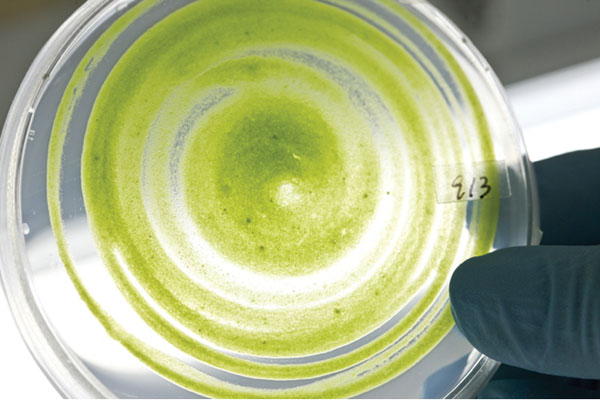Researchers have used compounds found in algae to create new kinds of sunscreens that double the protective power of existing formulas.
February 15, 2017

Ready to slather on some pond scum? Spanish researchers have made progress developing new types of UVA and UVB filters based on natural sunscreening substances found in algae. They’re highly stable and they boost the power of commercial products. What’s not to love?
The advances are desperately needed. Skin cancer is the most common form of cancer in the U.S., according to the Centers for Disease Control. The rates of melanoma have been rising for the past 30 years. According to the National Cancer Institute, the rate of new melanoma cases among American adults has tripled since the 1970s, from 7.9 per 100,000 people in 1975 to 24 per 100,000 in 2013.
Diego Sampedro and colleagues from La Rioja University in Logrono and collaborators from Malaga University and Alcala University, Madrid, Spain, worked with natural sunscreen molecules called microsporine-like acids (MAAs). MAAs are found throughout the microbial world, most prominently in marine algae. They’re small molecules derived from amino acids that work to protect the microbial DNA from radiation damage by absorbing ultraviolet light. In 2010, Harvard researchers identified which genes in the algae produce the natural sunscreen.
The Spanish researchers used MAAs to create a new class of organic sunscreen compounds, according to a university release about the research. The results of the study were published in the journal Angewandte Chemie. They were able to synthesize new compounds that turned out to be much more stable than oxybenzene, which is widely used in sunscreens. The new filters actually dissipate radiation as heat, but not to the extent that skin temperatures would rise as well. Most impressive, when tested in existing formulations, they doubled the sun protection factor (SPF).
You May Also Like


